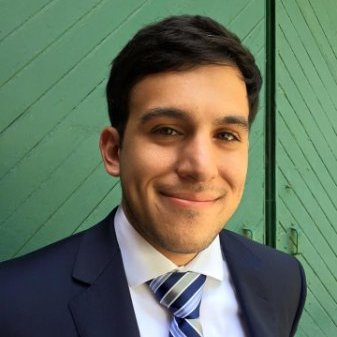Don’t Look Now but President Trump Named a New FBI Director
Yesterday, President Trump announced on Twitter that he plans to nominate Christopher Wray as the new Director of the FBI. The FBI is currently being led by Acting Director Andrew McCabe, whom the New York Times reported was considered for the post. The Senate must confirm Wray before he can assume the directorship.
Published by The Lawfare Institute
in Cooperation With

Yesterday, President Trump announced on Twitter that he plans to nominate Christopher Wray as the new Director of the FBI. The FBI is currently being led by Acting Director Andrew McCabe, whom the New York Times reported was considered for the post. The Senate must confirm Wray before he can assume the directorship.
Christopher Wray graduated from Yale Law School in 1992 and clerked for then-Judge J. Michael Luttig of the Fourth Circuit immediately thereafter. After a few years of private practice at King & Spalding, he joined the U.S. Attorney’s Office for the Northern District of Georgia. Politico reports that, in that office, he handled drug, gun, counterfeit money, and corruption cases. From 2001 through 2005 Wray held a number of positions at Main Justice. In 2001 he was appointed first Associate Deputy Attorney General and then Principal Associate Deputy Attorney General, with oversight responsibilities that spanned the Department. Wray was named Assistant Attorney General in charge of the Criminal Division with unanimous Senate consent in 2003. As head of the Criminal Division, Wray served on the President’s Corporate Fraud Task Force, oversaw the Enron Task Force, and more generally “helped lead the Department’s efforts to address the wave of corporate fraud scandals and restore integrity to U.S. financial markets.”
While on the Enron Task Force, according to Politico, Wray came to know Andrew Weissman, who later served as general counsel at the FBI and is now a top deputy to Special Counsel Robert Mueller in his investigation regarding ties between the Trump campaign and Russia.
Wray would have touched on a wide swath of law while leading the Criminal Division. The Division is charged with “develop[ing], enforce[ing], and supervis[ing] the application of all federal criminal laws except those specifically assigned to other divisions.”
After 2005, Wray returned to King & Spalding, focusing on white-collar crime and government investigations. While at the firm, Wray represented New Jersey Governor Chris Christie in investigations related to “Bridgegate,” a lane-closing retaliation scandal that ensnared two close Christie advisors. Wray’s law firm profile also outlines a long history of working on investigations involving the Department of Justice, the SEC, IRS, Department of Labor, Treasury Department, and the Federal Reserve. According to the New York Times, Wray has consistently donated to Republican candidates or committees, though he is not known as a partisan.
News of Wray’s appointment is garnering a range of reactions. Most are encouraged by his resume. Neil MacBridge, a former U.S. attorney in Northern Virginia, said that Wray was a “great pick” that would bring “deep law enforcement and prosecutorial background, great judgment [and] even temperament.” Lawfare’s own Jack Goldsmith wrote this morning that, “Wray is smart, serious, and professional. He doesn’t have quite the range of experiences that his two predecessors did. But he has deep experience with federal criminal law and the FBI.” Alice Fisher, also a former head of the Criminal Division, attested that “Chris is a wonderful choice to lead the F.B.I. who cares deeply about the institution and already has strong relationships with the F.B.I.” Not disputing his credentials, Senator Mark Warner, top Democrat on the Intelligence Committee, commented that “it appears the president is trying to change the topic” in light of former Director Comey’s coming testimony tomorrow.
Given that Wray will be assuming responsibility for inquiries into ties between the Trump campaign and Russia, as well as mounting concern about White House attempts to obstruct this investigation, Goldsmith projects that we should expect “a probing confirmation process.”



.jpg?sfvrsn=8253205e_7)
.jpg?sfvrsn=cbb26fe8_9)
